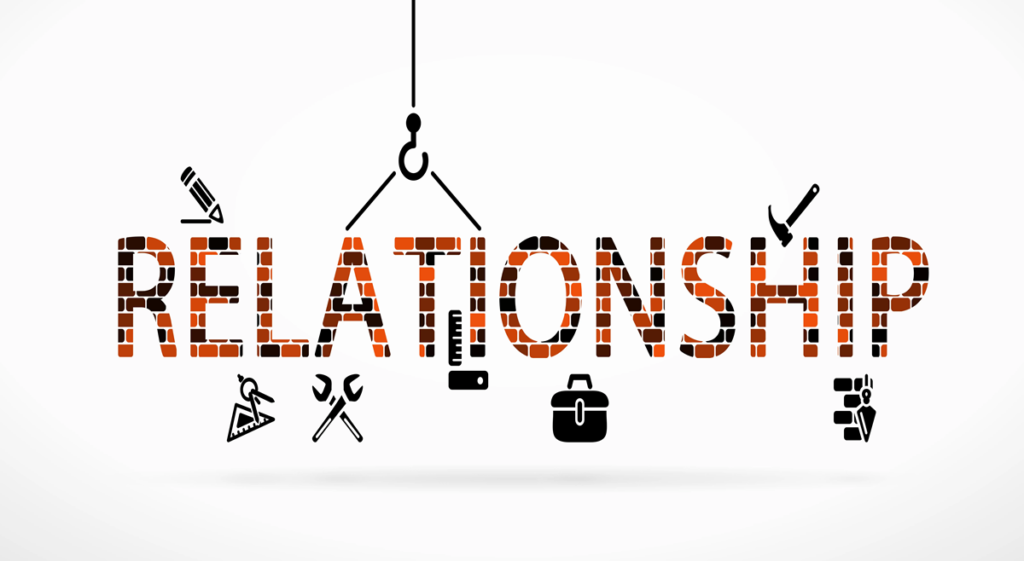Building and maintaining healthy relationships – Healthy relationships are fundamental to our happiness and overall well-being. They not only enhance our quality of life but also provide a sense of fulfillment and contentment. In this blog, we’ll explore what defines a healthy relationship, identify key signs to look out for, discuss the benefits they bring, and offer tips on effective communication to keep your relationships thriving.
What is a Healthy Relationship?
A healthy relationship is one characterized by mutual support, love, and respect. These relationships are crucial for your personal happiness and overall satisfaction. They involve a continuous effort from both parties to nurture and maintain the connection. Healthy relationships are not a given—they require time and dedication to develop and sustain. The commitment to work together on building and maintaining a positive bond is what makes a relationship flourish.
Signs of a Healthy Relationship:
Recognizing a healthy relationship involves looking for specific traits that signify a strong and supportive bond:
- Respect, Honesty, and Trust: These are the cornerstones of any healthy relationship. Partners should honor each other’s opinions, maintain honesty, and trust each other. This foundation helps build a solid and reliable relationship where both individuals feel valued.
- Open Communication: Effective communication is a hallmark of a healthy relationship. This means talking openly about thoughts and feelings and actively listening to your partner’s perspective. Misunderstandings can occur, but addressing them through clear and empathetic dialogue helps prevent issues from escalating.
- Equality: In a healthy relationship, both partners contribute equally and have an equal say in decisions. This balance ensures that neither partner feels dominated or undervalued, fostering a sense of partnership and shared responsibility.
- Shared and Individual Interests: While it’s important for partners to share interests and activities, maintaining individual hobbies and passions is equally vital. This balance helps each person grow and keeps the relationship dynamic and fulfilling.
- Understanding and Care: Empathy and support are key components. Partners should strive to understand each other’s needs and offer emotional support, particularly during challenging times. This mutual care strengthens the bond and reinforces the relationship’s resilience.
- Shared Values: Aligning on important matters like finances, child-rearing, and life goals contributes to a harmonious relationship. Shared values create a sense of unity and purpose, making it easier to navigate life’s challenges together.
Benefits of Healthy Relationships:
Investing in healthy relationships brings a wealth of benefits that significantly impact your life:
- Enhanced Well-being: Individuals in healthy relationships often report higher levels of happiness and satisfaction. The support and love they receive contribute to a positive outlook on life and overall contentment.
- Reduced Health Issues: Strong, supportive relationships are associated with lower levels of stress and fewer physical and mental health problems. The emotional security provided by a healthy relationship can contribute to better overall health.
- Increased Confidence and Support: A solid relationship boosts your sense of worth and belonging. It provides a support system that can help you overcome difficulties and challenges, reinforcing your confidence and resilience.
Subscribe to our newsletter for more insights and tips on building and maintaining healthy relationships!
Communication in a Healthy Relationship:
Effective communication is essential for maintaining a healthy relationship. It involves several key practices:
- Clarity: Ensure you clearly express your thoughts and feelings. Avoid ambiguous language and be straightforward about what you want to communicate. Clear communication helps prevent misunderstandings and confusion.
- Active Listening: Make a genuine effort to understand your partner’s perspective. Listen attentively without interrupting, and show empathy towards their feelings. Active listening fosters a deeper connection and demonstrates that you value their input.
- Confirmation: After discussing important matters, double-check that you have understood your partner correctly. This step helps confirm that you are on the same page and prevents miscommunications from affecting the relationship.
- Open Dialogue: Regular and open communication helps address issues before they become major problems. Set aside time to talk about your feelings, expectations, and concerns. This ongoing dialogue keeps the relationship healthy and prevents issues from festering.
Maintaining a Healthy Relationship:
Building and maintaining a healthy relationship requires ongoing effort and dedication. Here are some additional tips to help you sustain a positive connection:
- Prioritize Quality Time: Spend meaningful time together, engaging in activities that you both enjoy. Quality time strengthens your bond and creates shared experiences that enhance your relationship.
- Show Appreciation: Regularly express gratitude and appreciation for your partner. Small gestures of appreciation, like saying thank you or acknowledging their efforts, contribute to a positive and supportive atmosphere.
- Address Issues Promptly: When conflicts or issues arise, address them promptly and constructively. Avoid letting problems linger or escalate. Approach disagreements with a problem-solving mindset and work together to find solutions.
- Seek Support When Needed: If you encounter persistent challenges or difficulties, consider seeking support from a counselor or therapist. Professional guidance can provide valuable insights and tools to help strengthen your relationship.
Healthy relationships are vital for a fulfilling and happy life. By recognizing the signs of a healthy relationship, understanding the benefits they bring, and practicing effective communication, you can build and maintain strong, supportive connections with your partner and loved ones. Remember, relationships require ongoing effort, but the rewards of a loving and supportive bond are well worth the commitment.
If you found this blog helpful, consider subscribing to our newsletter for more insights and tips on building and maintaining healthy relationships. Share your thoughts or experiences in the comments section below—we’d love to hear from you!





